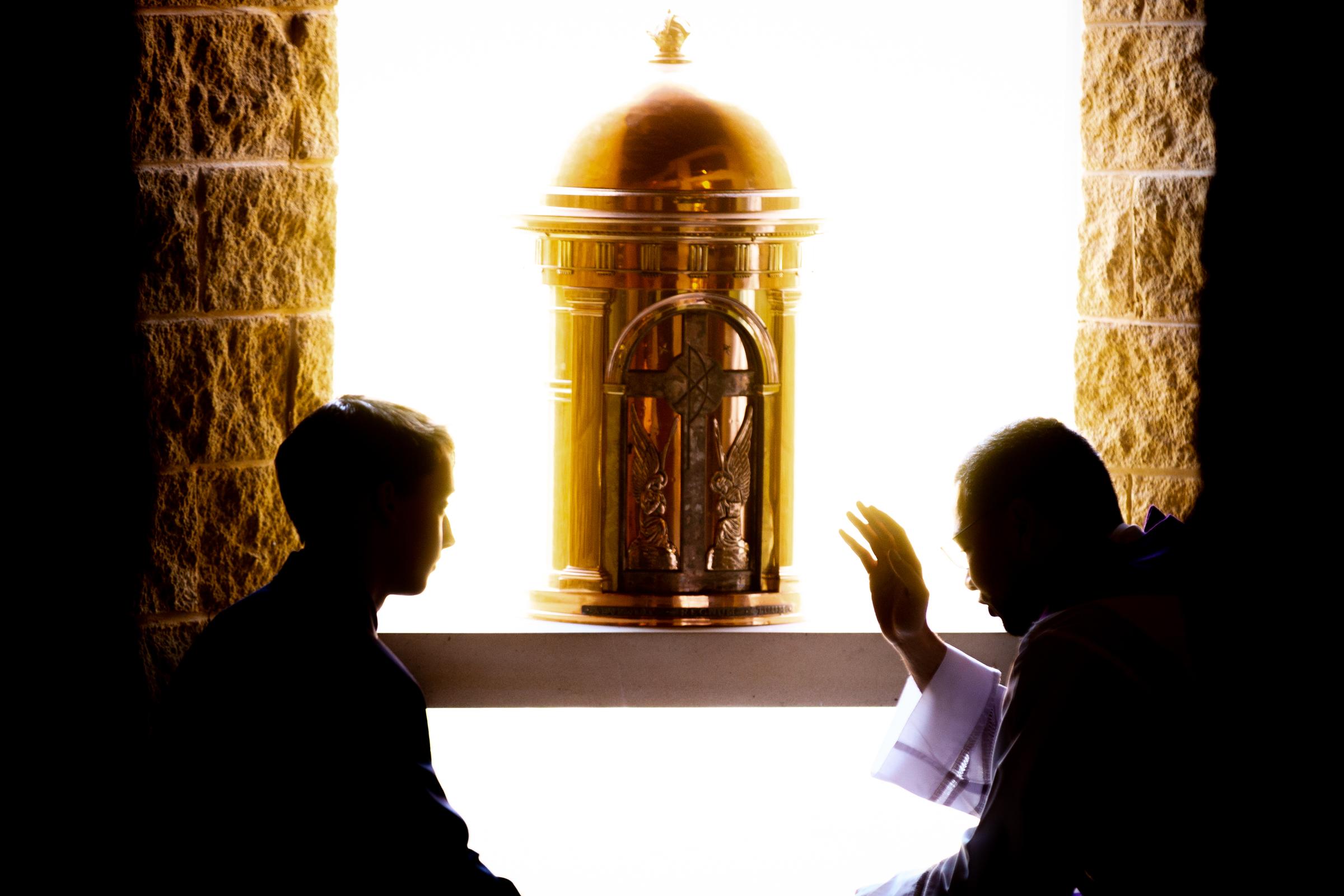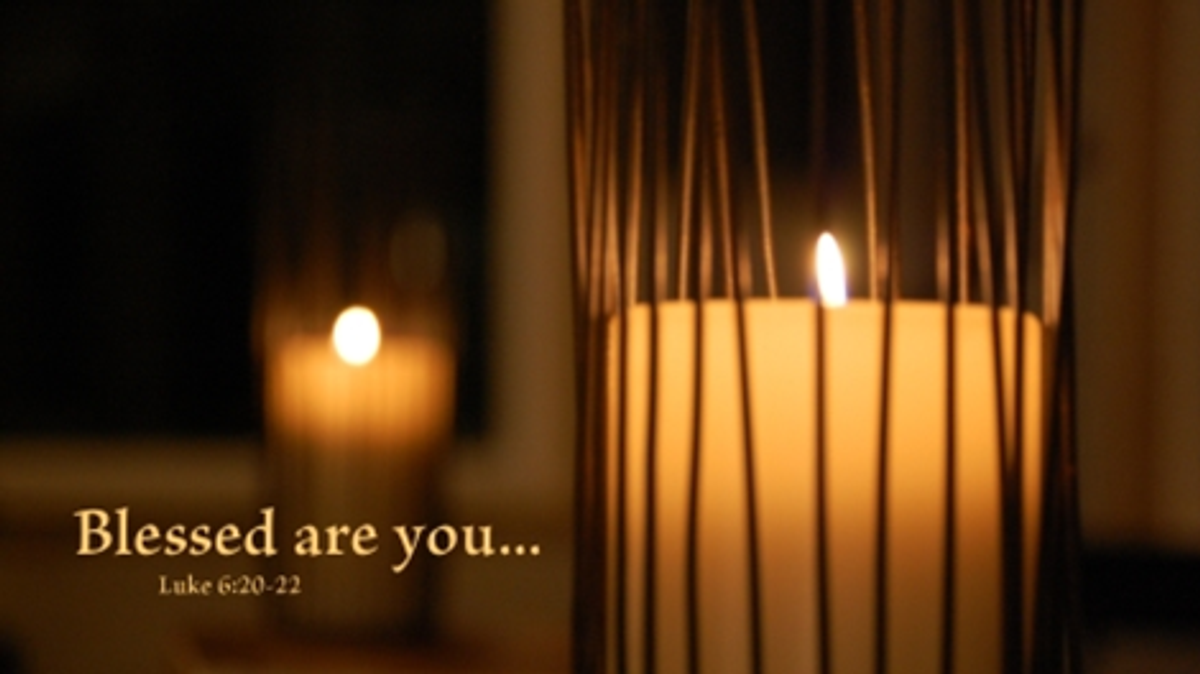Liturgy

Community Mass
Next Friday, 25 February, Community Liturgy will be prepared by students in Year 12. We look forward to welcoming Year 12 students at 8:00am in the Chapel. At this Mass we will also commission the Year 12 Student Extraordinary Ministers of Holy communion for 2022. The students competed their training during the summer holiday.
In accordance with current guidelines, Mass attendance is limited to students in the year group and staff members. We look forward to welcoming families, friends and alumni in the future, once COVID restrictions have eased.
Community Mass details:
- College Chapel
- Fridays in term time
- Starts: 8:00am and concludes 8:30am
SACRAMENT PROGRAM
‘Family-focused, parish-based, Catholic school supported’
Parents of students in Years 3, 4 and 6
Students will be preparing for the sacrament of Reconciliation (Year 3), Holy Communion (Year 4) and Confirmation (Year 6). This time of preparation is joyfully shared by families, parishes & schools.
Sacraments are celebrated in parishes – usually the parish you consider your ‘home’ parish. It is important to ‘enrol’ in the parish program, even for families in Catholic schools, as parishes need to plan ahead for these events.
Enrolment details for parishes of Cottesloe/Mosman Park, City Beach, Doubleview and Subiaco may be found here.
Alternatively, contact the Parish Priest or Sacrament Coordinator in your own home parish.
If you would like further information about the Sacrament Program:
- If your nearest parish is not listed, search the Archdiocesan website;
- Contact Mary-Anne Lumley mary-anne.lumley@cewa.edu.au 08 9383 0513.
GOOD NEWS for the 6th Sunday in Ordinary Time
“Happy are the poor. Woe to the rich!”
Luke 6:17. 20-26
The reflection for this Sunday’s Gospel is by Jesuit priest, Fr Richard Leonard. Fr Richard Leonard SJ is the Director of the Australian Catholic Office for Film and Broadcasting, is a member of the Australian Catholic Media Council and is author of Preaching to the Converted, Paulist Press, New York, 2006.
What you see is often not what you get.
When we hear the phrase 'Blessed are you' it can sound rather patronising. It can seem that Jesus glosses over all sorts of tough human realities with, 'Well done, keep it up, be happy and we'll fix it all up in heaven'.
But reading the beatitudes in this light is a direct contradiction of what Jesus says in this text and certainly how he lived it out.
The Hebrew concept of a blessing isn't about Divine pats on bowed human heads; it is about where the presence of God is to be found. In the Hebrew Scriptures, a blessing is the discovery that God is present and active in one's experience, right here and right now.
So the beatitudes are saying that we do not need to go past our own daily struggles to find the presence of God. Jesus tells us that when we see the poor, the compassionate, the mournful, those who campaign for a just society and suffer because of it, the gentle, the innocent, the peacemakers and the martyrs; we are encountering, in a special way, the presence of God.
Jesus teaches us that God is not impervious to our pain and happiness, or a great manipulator desiring terrible things to punish us or teach us something. No. The God of the beatitudes is a companion with us in every experience we go through either personally or as a community.
Luke goes on to give us the 'woes and warnings' and these are as important as the beatitudes. Luke highlights for us that every blessing carries with it a call, every gift contains a duty to share it, and every right houses within it a responsibility.
This is particularly true of our nation where the vast majority of our citizens are housed, educated, have clean drinking water, a long life span, a job and enjoy a stable democracy. This places us in the top fifteen percent of the world's population. We should discover God's presence in the midst of these blessings, but we must face up to the responsibilities they give us.
It is not good enough to be simply appalled at the widening gap between rich and poor in our own country and around the world. Today's Gospel places at our feet the challenge to do something about it, in our prayer, in our careful use of resources, in what we spend our money on and how we vote for governments which might affect international change.
The Beatitudes and warnings call us to become so transparently attentive to justice, development and peace for all people that what others see in the followers of Christ is precisely what they get.



